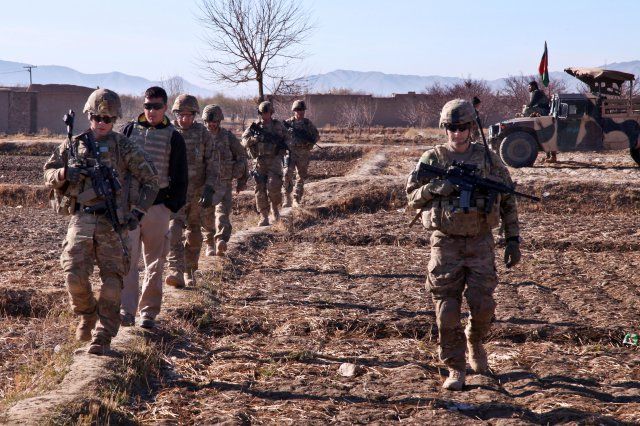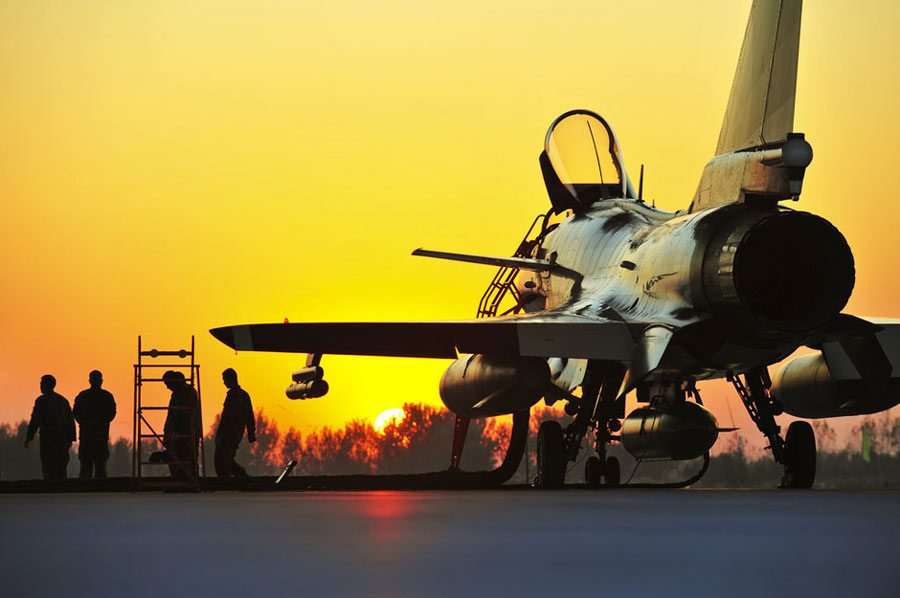After four days of debate, an overwhelming majority of Afghanistan’s Loya Jirga voted to endorse allowing US troops to stay in the country after the end of the NATO mission there in 2014. The security agreement required for such a move calls for some 18,000 US troops to remain in Afghanistan to continue training and consulting Afghan military and security forces. The deployment of the German army to Afghanistan after 2014 also depends on the agreement being enacted.
Some of the conditions set by the United States created a stir, including the demand that US soldiers answer to their own courts rather than the Afghan justice system when charged with human right violations or other crimes.
The 2,500 members of the Loya Jirga represent Afghanistan’s most important political and social leaders. But the council’s decisions are not legally binding and the security agreement will require approval of both houses of parliament and the president’s signature before it can go into effect.
“I expect parliamentary approval to be a formality,” Nils Wörmer of the Konrad Adenauer Foundation in Kabul told DW. While the Loya Jirga carries a great deal of influence in Afghanistan, it remains unclear how President Hamid Karzai will act, Wörmer added.
In a speech at the end of the council meeting, Karzai said he accepted the gathering’s decision but also set clear conditions on what it would take for him to agree to a security deal with the United States. “Only when Afghanistan has a lasting peace and the Americans stop raiding Afghans’ homes will I sign the agreement,” he said.
The United States had called on Karzai to sign the agreement immediately so US forces would be able to confidently lay out their future plans in the country. There are currently about 48,000 troops in Afghanistan with some 27,000 more in the country as part of an international mission to the country.
A spokesman for the US embassy in Kabul said the United States was of the opinion that “both countries would benefit” when the security agreement is enacted as quickly as possible.
In addition to the United States, the chair of the Loya Jirga is also pushing for the deal to go into effect quickly. Council head Sibghatullah Mojaddedi pulled no punches expressing his views. “If Karzai does not sign the security agreement, I will resign from all my offices and leave Afghanistan in matter of two to three days.”
The decision made by the council of tribal chieftains and elders sends a clear signal, Wörmer said. “The endorsement of the Loya Jirga is so strong that Karzai would have a difficult time defying it.”
It remains unclear to many observers just what policy Karzai is aiming for, according to Wörmer. He added that many Afghan observers were left shaking their heads over an interview Karzai gave to the BBC in early October, in which the president said NATO did not bring stability to Afghanistan and questioned the military alliance’s mission in his country.
Ahead of the Loya Jirga, Karzai set a number of new conditions for a security deal and went as far as to say there was no guarantee that such a deal would even come into effect. Wörmer said he thought Kazai’s statement was aimed at getting the best deal possible from the US while at the same time emphasizing Afghanistan’s sovereignty.
Who bears responsibility?
There was, however, another reason Karzai wanted to hear from the Loya Jirga on the issue of a security pact, according to Marion Regina Müller, head of the Heinrich Böll Foundation’s office in Kabul.
“Karzai did this because he wanted to spread responsibility for this on to many other people,” she said.
Many countries have expressed their approval for the Loya Jirga’s decision. “For the security and further development of the country, particularly the financing of the security forces, the agreement represents a very important step,” said Müller.
A security agreement will also prove important for civilian life in Afghanistan. “The decision is primarily important for many participants in civil society, like the groups that fight for human rights,” she said. “This decision makes it possible for them to continue their work.”
“Supporters see that additional civilian aid, as well as the financing of their own security forces, depends on the military deployment,” Wörmer added.
But there are also those who oppose the deal endorsed by the Loya Jirga. Critics have said the prolonged presence of US troops in Afghanistan would extend the war raging in the country.
Mixed feelings in Pakistan
There were mixed reactions to the decision from Pakistan. As Afghanistan’s neighbor and a haven for Taliban fighters, Pakistani leaders were playing close attention to the Loya Jirga.
“We want all US and NATO military forces to leave Afghanistan,” said a spokesman for the conservative Jamaat-e-Islami party. “The decision of the Loya Jirga was dictated by the Americans.”
Afghanistan expert Usman Qazi denied that in statement. “It’s laughable to claim that hundreds of delegates to the Loya Jirga, which represents different clans in Afghanistan, could be forced into making a decision by the United States. There is no reason for Islamabad to oppose this decision. Like every sovereign state, Afghanistan has a right to make its own decisions.”











